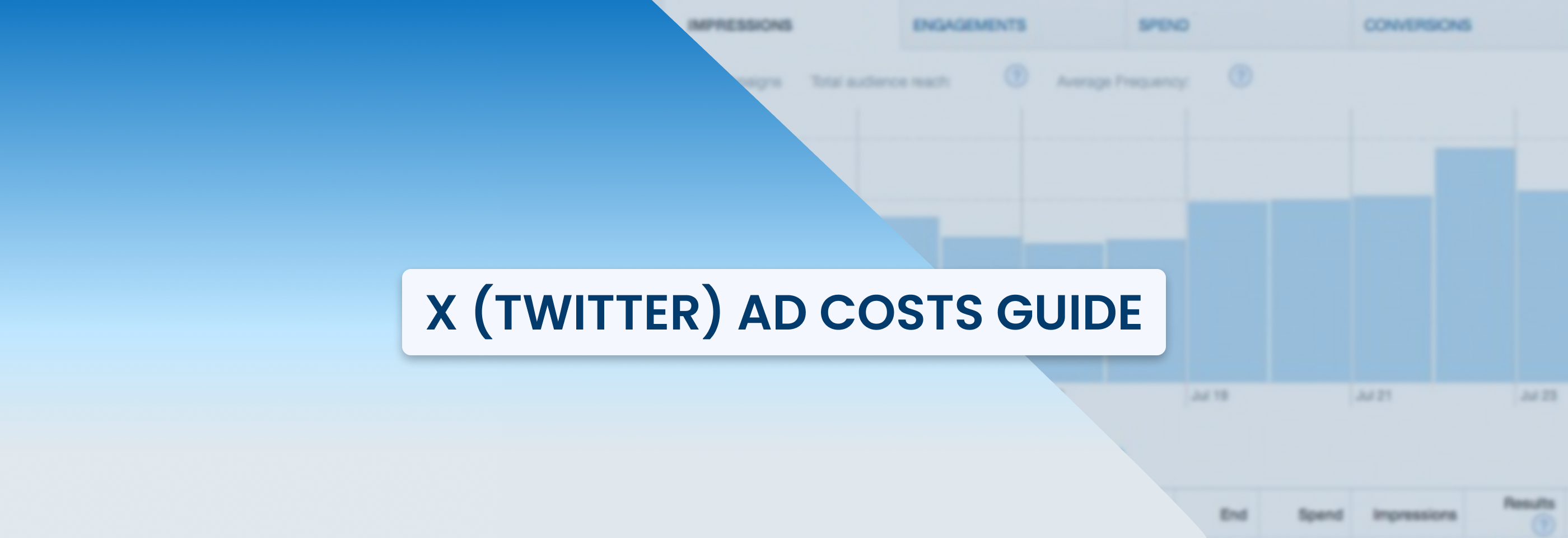Best Facebook Automated Rules Tips
2023-11-27
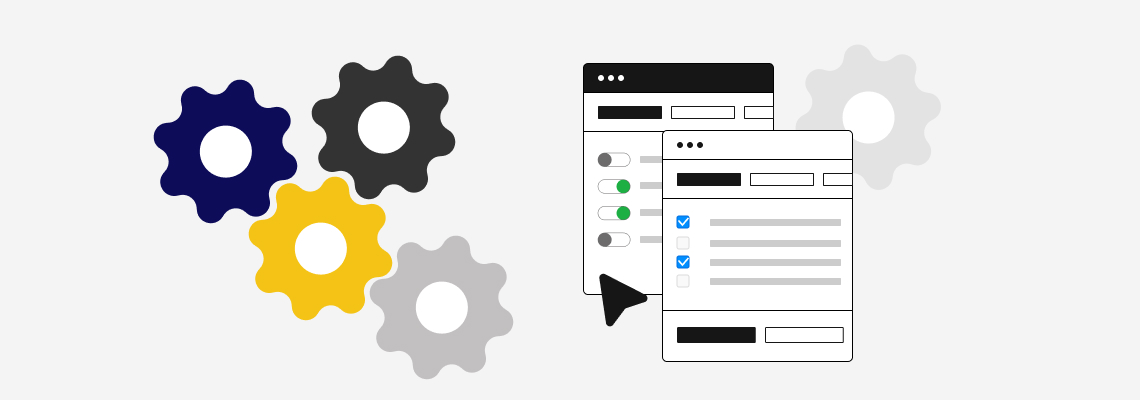
The importance of automated rules is becoming more and more obvious to marketers every day. The rules are the real lifesavers for many marketers, making their advertising experience more efficient. Basically, rules can replace a couple of employees and save tons of time and marketing efforts.
However, rules are not a magic pill. To successfully launch a campaign using automated rules, it's needed to understand the fundamentals of rule creation and be able to apply the rules' basic functionality. Even this, though, is not enough. If you are an experienced marketer who knows perfectly how to create and manage rules, some of our tips may be unfamiliar to you. Let's sort things out.
Shortly about automated rules
Facebook automated rules are operations that occur automatically when a certain condition is met. Simply put, the whole process looks like this: you set an automatic rule for Facebook and it acts on your behalf.
Example: you may set the rule for Facebook to turn off the ad automatically if your return on ad spend remains below a specific point after 10,000 impressions. And Facebook will.
Rules continually monitor the campaigns you've launched and notify you when anything happens.
In order to learn more about automated rules, get acquainted with their core elements and basic functionality, you can look through our article “How to Use Automated Rules to Scale Facebook Ad Campaigns”.
Now that we've covered the fundamentals of rules, it's time to look for some useful insights into automated rule setting.
Tip #1. Third-party services
Third-party services are web-based technologies that can provide one with advanced functionality, metrics and give extra insights. As a result, they assist your company in making more income.
It can be tough to determine when these services have a place in your business and what kind of value they can provide. This is why it is necessary to:
- Conduct a research to evaluate the pros and cons of third-party services usage. Make a list of platforms and services that might suit your demands and explore their website (especially solutions and pricing), review feedback, and so on.
- Run tests to determine which services may benefit your business. Most services provide a free trial period or demo, so you could give them a try. Explore their help center or FAQ page. Feel free to contact their support service to clarify everything.
Here are the top advantages of employing third-party services you should not ignore:
1. Time-saving
Consider how much time it takes you to set and keep track of rules. A third party can act as an extension of your internal team to complete tasks more quickly. That way your team would be able to concentrate on some more serious and complicated tasks.
2. Capabilities
Special services can perform tasks for your business that you may not be able to do yourself. If the services did not provide such functionalities, you would have to engage extra employees to complete specific tasks. Fortunately, numerous services now replace one or more employees. For instance, with ConvertBomb you can easily create custom metrics to tailor conditions to your needs.
3. Cost-effectiveness
Third-party platforms are particularly cost-effective because they cover all expenses associated with ad automation. An established third-party platform that has affordable pricing can greatly benefit businesses
Third-party services, when implemented correctly, may positively affect your work. So it’s a great tip to take into account.
Tip #2. Existing strategies
While creating a rule on ConvertBomb, you are able to either create a rule from scratch or use one of the existing strategies.

The use of strategies is best suited for those who want to implement a ready-made solution for one of the following reasons:
- insecurity in setting up rules
- lack of time as well as desire to set rules manually
Basically, strategies are existing rules that are ready to be used and that have previously demonstrated their effectiveness in the advertising campaigns of professional marketers.
Example: you can choose a strategy to scale profitable campaigns and use predefined rules aimed to allocate the budget across ads according to their profitability.
Strategies usually differ based on the ad campaign objectives. The following choices are available on ConvertBomb:
- E-commerce
- Lead generation
- Mobile app
For each campaign objective, you are able to choose from multiple strategies available. By doing this, you will start working with predefined rules as if it was a template. Of course, you will be able to make changes to the strategies that will suit your case.
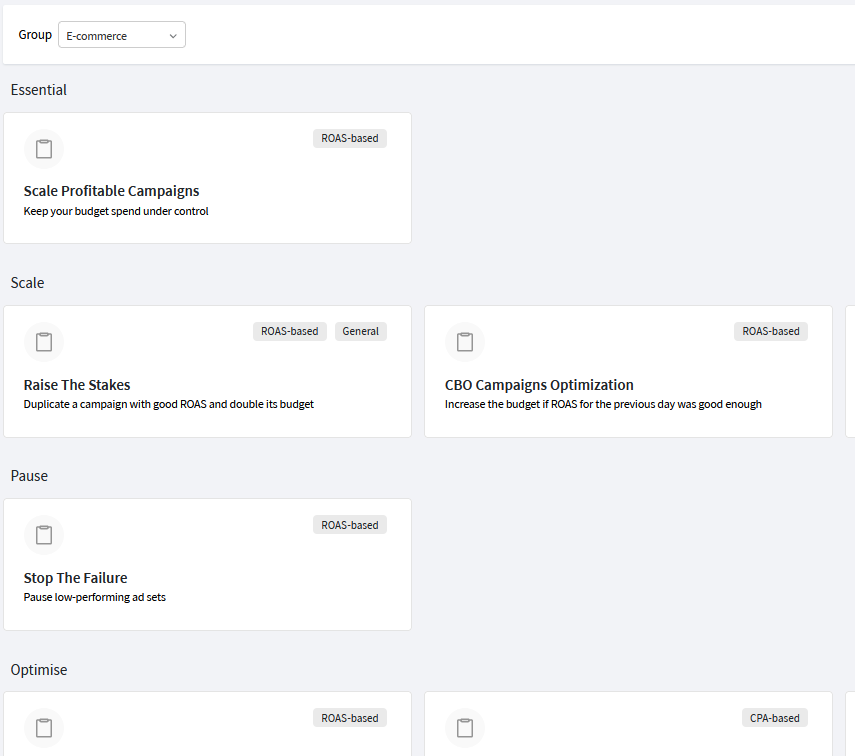
Strategies are a powerful tool for both beginners and experienced marketers. They are a real illustration of how automated rules make advertising easier.
Tip #3. Details
When creating a rule, it is necessary to be clearly aware of each of its elements. Items, actions, conditions - you need to understand what is intended for what purposes.
Let's go through the rule's most important identifiers:
- Items. These are the levels of the ad campaigns your rule will be applied to (ad campaigns, ad sets, and ads).

- Actions. On an action level, you choose what you want the rule to perform after your condition is met. The number of actions differs based on the item you've selected.
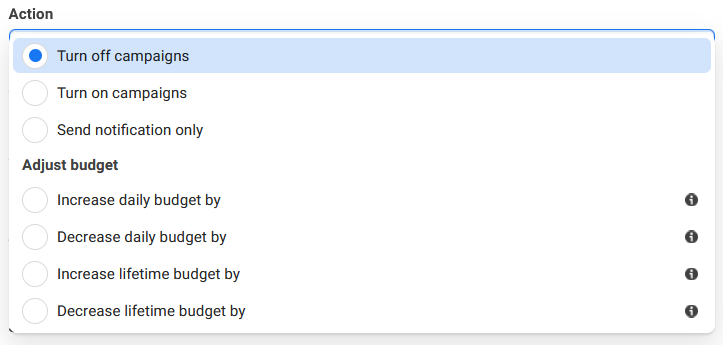
- Conditions and logical expressions. This level allows you to specify which metric will be considered to trigger the action you've chosen. For example, your condition may be "cost per click," and your logical expression would be more than $5.

- Schedule. It determines how often to check the rule. A rule may or may not be triggered, but the checks are nevertheless performed in accordance with the schedule.

Some advertising platforms provide advanced functionality offering users to select the frequency. Many marketers confuse frequency with scheduling. Frequency is how often the rule will trigger within the chosen schedule. So frequency takes precedence over schedule. This additional functionality opens up more possibilities for ads management and optimization.
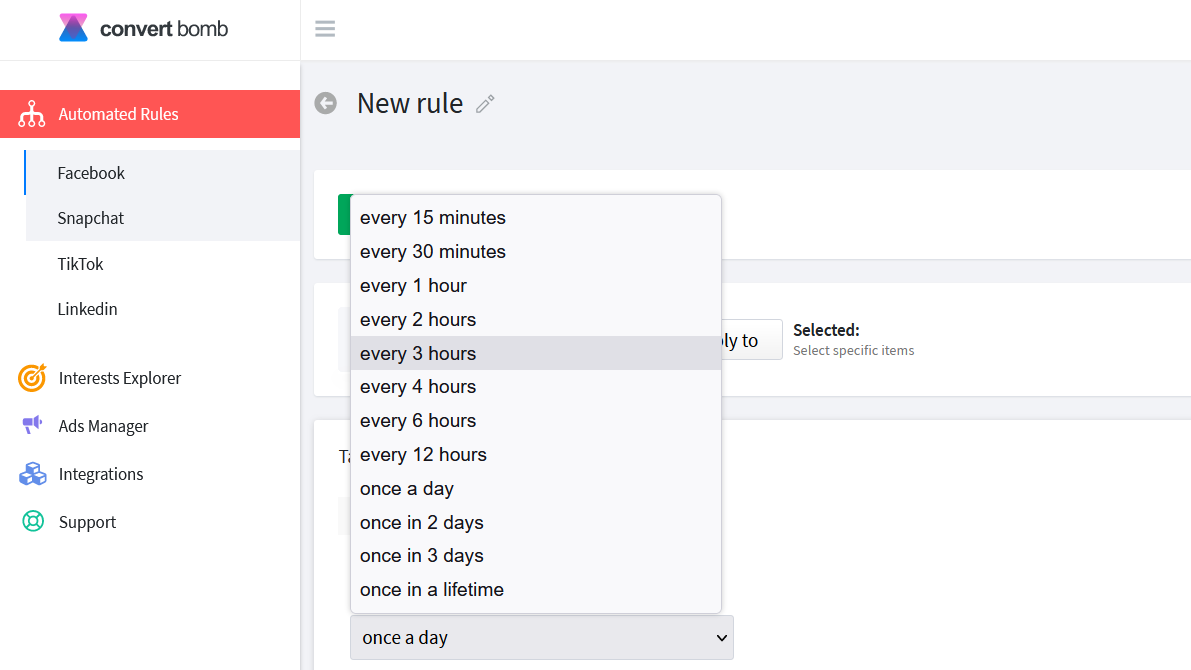
To get a better understanding of how each element of the rule operates, check out our quickstart guide for creating automated rules from scratch.
Tip #4. Simplicity
If you are just starting off, you do not need to instantly create a complicated rule with multiple conditions. The major reason for this is that if the rule fails, you will simply not understand what the problem is due to an excessive amount of conditions. Because of the enormous number of variables that must be checked, tracking the rule's functioning will become significantly more complex and take more time. That is why, creating a rule from scratch, begin simply.
Remember that at the beginning, you must ensure that you are not losing money. It is not necessary to create complex rules or spend a large amount of money to do this. Obtain the preliminary results, assess them, and, if required, make improvements.
The finest rules are those that are kept simple and have a timeframe of several days. The point is that custom rules work best when combined with constant human monitoring to accomplish one straightforward task, such as scaling the budget.
And here is another important moment: Facebook is attempting to assist you in managing your advertisements by removing tedious jobs, but it's still crucial to have a person review the results and make a few manual decisions based on factors other than analytics.
Tip #5. Logs
Any of the ad platforms' automated rules home pages allow you to hover over a rule to see a "Logs" button appear.

Simply put, logs are helpful reports that allow you to get to the bottom of your rules' performance and understand why or why not a certain rule was executed.
Usually, every log entry includes the time, the number of applied actions, the status of changes applied, and any errors.

Logs are an excellent source of information. You may use the information you learn from logs to make meaningful adjustments to your campaigns. Keep in mind that every little detail is important when it comes to your advertisements. As a result, logs might be crucial for evaluating the efficacy of your rule.
Conclusion
As you can see, there are several techniques to improve the efficiency of using automated rules. Sometimes, the success of an entire campaign is determined by relatively small elements. Who knows, maybe strategies are just what you've been looking for. Or maybe you didn't have enough logs? Only testing will reveal the truth, so go ahead and try the above tips!

